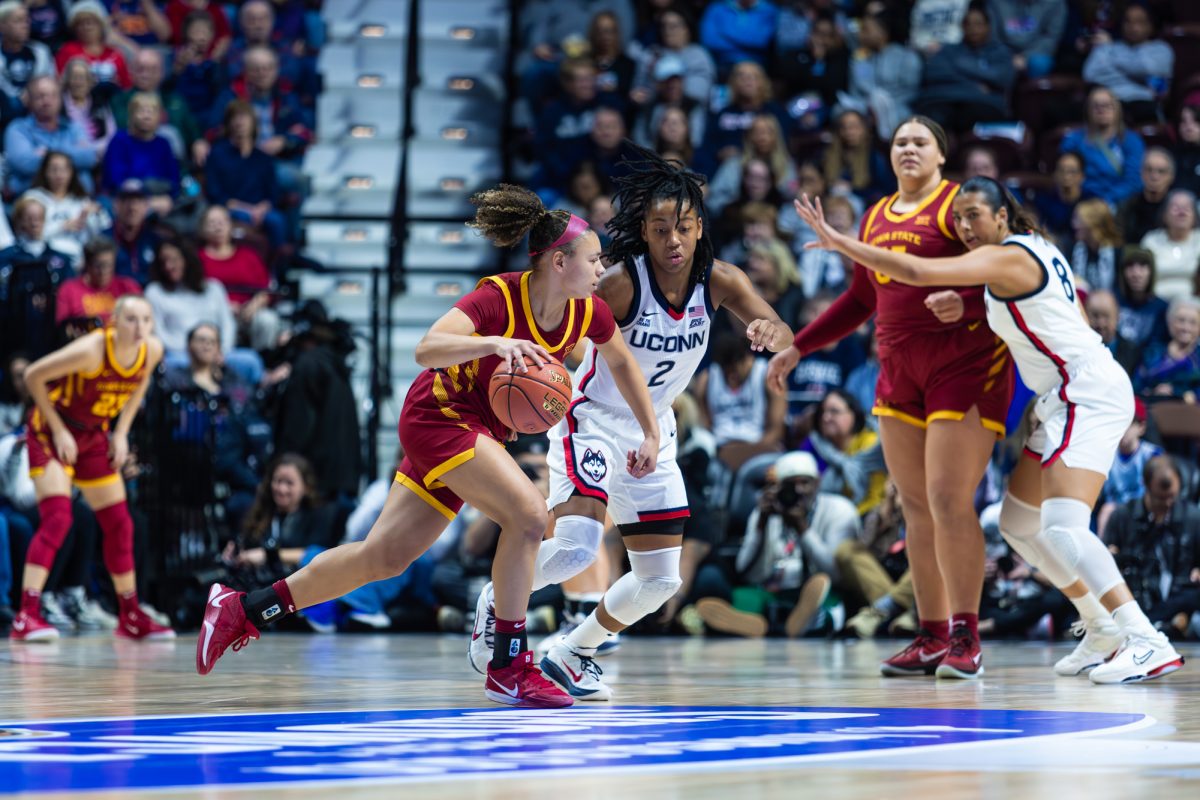BARKER: Shape your culture
April 14, 2010
I’d like to begin this article with a disclaimer: I do not, nor have I ever, truly enjoyed pop music. The same goes for the “Saw” movies one through 17. In that light, forgive me if I accidentally bash your favorite movie, song or TV show.
Now, onto the good stuff. I saw “Clash of the Titans” this weekend. No, I don’t mean to imply that “Clash” was good. It was terrible, like every Dane Cook movie is terrible — looking at you “Good Luck Chuck.” It was bad in a way that made the claymation version seem like “Citizen Kane.”
But at the end of the night, all I could think about — besides the fact that Sam Worthington could be replaced by a paper bag full of random epic movie lines and a gaggle of literate chimpanzees — was that I paid for the movie. That means that some executive at Warner Brothers is going to see my $15 as a part of a multi-million dollar haul and think that a remake or sequel is a good idea. Because of this, Warner Brothers is more likely to produce another crappy movie.
That’s what people don’t consider. When you spend money on Lady Gaga’s new CD, you are effectively telling your corporate “representatives” that you want more. You are, in a manner of speaking, voting. In fact, pop culture emulates democracy in a number of ways. Everyday we vote with our money, we engage in a “forum” through everyday conversation, and producers and record labels pass that back to us in the form of a product based on our voiced preference.
If you’re like me, you’ve wondered why you have to hear “I’ve Got a Feeling” every time you turn on the TV while singles off of the Mars Volta’s Grammy-winning musical masterpiece — not sarcasm — go unheard of in larger circles.
The answer: Quality is not really of concern. While allmusic.com — a music review site — and Rolling Stone gave the Mars Volta’s “Bedlam in Goliath” 90 and 80 out of 100, the two music mags gave the Black Eyed Peas’ “The E.N.D.” 50 and 70, the RS being a bit more pop-friendly as of late. Yet have you ever heard “Ouroborous” from “Bedlam,” even when the occasion called for it?
No, you have not. This is because, in democracy, it is not the highest-quality opinion that matters most, it is the one that is voted on by the majority. By this analogy, the Black Eyed Peas could be considered either the GOP or Democratic party and Volta considered the socialist party the way the votes are split up. “Elephunk,” for example, sold 7.5 million copies according to Black Eyed Peas Web site, while “Bedlam” sold 153,000 a year-and-a-half after its release, according to Yahoo.com Music. Hence, if we continue the analogy, the Peas’ singles were “elected” into the public.
As with any election, the community then gets to rue the results. Requests, votes on the billboard.com charts, Nielsen ratings, conversations and views on Hulu provide a public referendum on community-wide programming in much the same way that voters call into radio programs or blog about their opinions in a democracy.
For example, if you show up to class and ask how “Lost” was last night, everybody gets to voice their opinion. One person may say it was “the greatest episode ever,” the same way he felt about the last 40 episodes. Another person may say that it was “a greater tragedy than the death of Buddy Holly,” and a conversation ensues. The conversation weeds out the bad songs or shows, brings new ones to light, and ultimately shapes what you will watch or purchase in the future. Your “votes” evolve through the open exchange of ideas.
Ultimately these purchases and conversations work their way through the system and end up at the “legislation”: the producers of media big and small. Marketing research and sales figures all help corporate movers-and-shakers decide how to direct the system in the same way that legislators receive letters and e-mails and tune their actions to fit the needs of their constituents. This results in the production of new media, designed to receive the most support through money and cultural buzz.
So you may be wondering how this gets back to you. In that case, I finish the analogy.
As in democracy, you are inexorably affected by the process of pop culture. On any given day you cast a number of votes and the culture you experience in the future is based on that. That means that when you spend your hard-earned money to see the latest “Saw,” you are casting a vote to see more “Saw.” The more you watch “Saw” or download “Bad Romance” instead of seeing “The Hurt Locker” or listening to MGMT, the less likely you are to see that kind of enriching culture in the future.
By all means, if you like listening to Britney Spears, be my guest — just don’t invite me over — but if you value your cultural experience, patronize the arts you covet. Spend the money on Oscar nominees and legally — yes, legally — download the albums of truly innovative artists. Furthermore, go to an art gallery or attend a play.
Experience something that will make you grow, not dumb you down. Exercise your right to vote responsibly and shape your cultural experience for yourself and those around you.
And for heaven’s sake, never pay for “Chocolate Rain.”
Ian Barker is a senior in chemical engineering from Des Moines.






